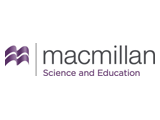
Macmillan Science and Education, a global division of one of the largest and best-known publishing and technology companies in the world will today host the official opening of a new regional office, based in Shanghai. The office will strengthen Macmillan’s ability to serve the fast growing scientific research and education sectors in China.
(Logo: http://photos.prnewswire.com/prnh/20130605/618566 )
The office will provide strategic leadership, business management and support functions to Macmillan’s Science businesses inGreater China, and Scholarly and Education businesses in Asia. Along with Macmillan’s existing footprint in Tokyo, Hong Kongand other locations in Asia, the new Shanghai office will provide high-quality content and solutions to transform learning and discovery, and improve the way students learn, teachers teach and scientists discover in the region.
Led by Charlotte Liu , Managing Director, Macmillan Science (Greater China) and Education (Asia), the Shanghai-based team will bring the best practices, products and services from Macmillan Science & Education’s global network, to help Chinese researchers and language learners achieve greater success. The office will also be instrumental in delivering Chinese language learning content, scientific discovery and other products from China to a global audience, using Macmillan’s highly established infrastructure and network.
Liu, a native of Shanghai, has spent fifteen years working in international publishing in both the USA and China. A graduate of English Language & Literature from Fudan University, Shanghai, she also has a MBA from Dartmouth College, USA. The office, based in the Xuhui district of Shanghai is staffed by both Chinese staff and international colleagues who have transferred from other offices across Macmillan’s global network. Together they have strong insights of both the Chinese and global markets.
At the opening ceremony today at the prestigious Shanghai Science Hall, Macmillan will sign a Framework of Cooperation with the Shanghai Association for Science & Technology (SAST), pledging a five year alliance to stimulate international co-operation in the fields of science and technology, to nurture local talent and promote the success of Chinese scientists to the global stage.
Annette Thomas , CEO of Macmillan Science & Education explains the motivating forces behind the Shanghai opening. “I am extremely proud of our many successes in the region over the past decade and this investment in Shanghai reflects our confidence and enthusiasm for the opportunities ahead. We envisage that we can make a major contribution to driving the rise of China’s contribution to global science, technology and innovative learning. Macmillan is perfectly placed to be an active partner with China in this exciting journey.”
Macmillan’s science and education brands have been serving customers in the region for over a decade; its current strategy of forming alliances with local partners has already proved highly successful. Together with FLTRP, Macmillan co-publishes the highly acclaimed, Ministry of Education approved, “New Standard English” series, enabling students from kindergarten to college in more than 20 provinces across China to learn English more effectively. The companies have also successfully co-produced Chinese language learning products under the Discover China brand, and a new bi-lingual science learning course for primary schools. Education products and ecosystems from Macmillan Higher Education and Nature Education are also used in the growing higher education sector in China.
The Nature Publishing Group (NPG) has long been collaborating with research institutions in China to improve the quality and global impact of science journals originating from China. NPG currently publishes seven journals in collaboration with partners in China, including Cell Research, one of the highest ranked Chinese journals in impact factor. Customized training programs are also offered to help Chinese researchers improve their research writing and communications skills, and become more successful in publishing their research results in high quality journals. In the area of popular science, the Chinese language edition of Scientific American, published under the name of Global Science, is a collaboration with the Chinese Association of Science & Technology, and has contributed to science popularization in general public in China.
























